Israel's fast-growing trade ties with the UAE
- Published
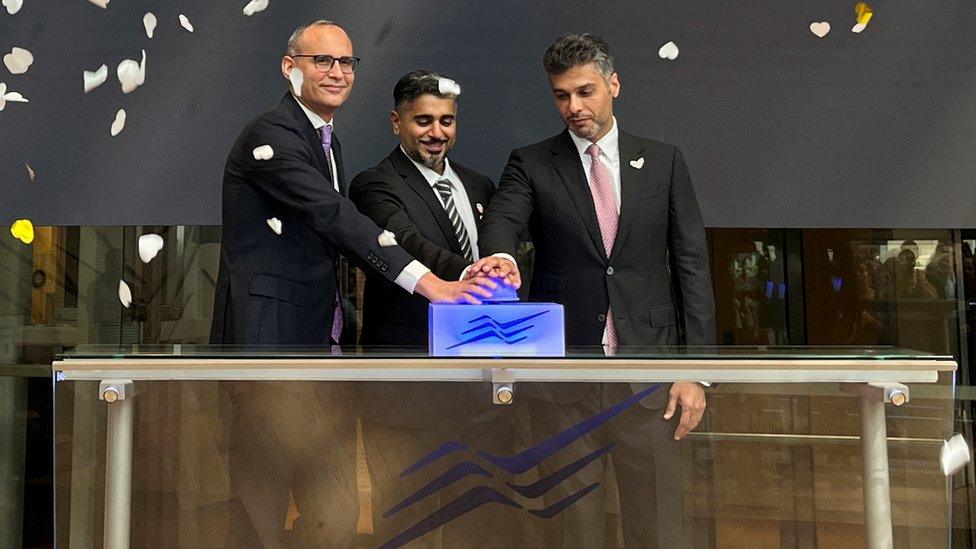
The UAE's ambassador to Israel, Mohamed Al Khaja, right, joins with Ittai Ben-Zeev and Ahmed Al Zaabi to open the day's trading on the Tel Aviv Stock Exchange earlier this month
Mohamed Al Khaja helps press a button to ring the Tel Aviv Stock Exchange opening bell, setting off a cascade of gold paper hearts through the shiny glass building.
Cheers erupt as Mr Al Khaja, the United Arab Emirates' Ambassador to Israel, then shakes hands with Ittai Ben-Zeev, the boss of the exchange, and Ahmed Al Zaabi., chairman of UAE financial centre Abu Dhabi Global Market.
It's no ordinary opening of the main Israeli stock market. Instead, it's another milestone to celebrate in the deepening ties between Israel and the UAE.
It comes two years after the two countries signed the historic, US-brokered Abraham Accords together with fellow Gulf state Bahrain.
These statements saw the UAE and Bahrain agree to normalise relations with Israel, establishing full diplomatic ties. It ended the decades-long boycott of Israel by all Gulf states.
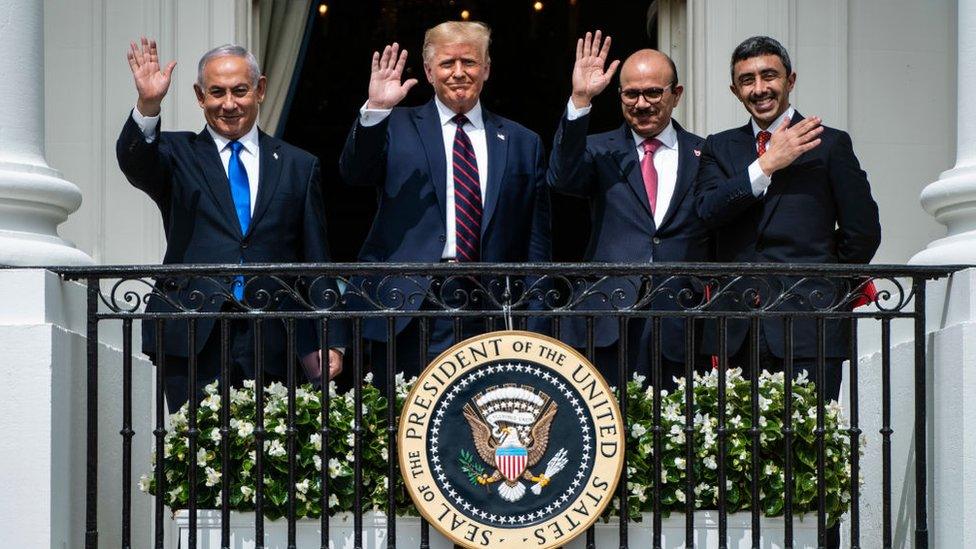
The Abraham Accords were signed in Washington DC on 15 September 2020
Emirati investor Sabah Al-Binali, part of the visiting UAE delegation, was all smiles as he watched the event in Tel Aviv earlier this month.
"We are witnessing history in the making, seeing the steady development of a long, deep and fruitful relationship between natural Middle East neighbours," said the executive chairman of investment fund OurCrowd Arabia.
Mr Al-Binali sees the growing business ties between Israel and the UAE as a win-win for everyone.
"There is so much natural synergy between Israeli and Emirati business and technology skills and experience, that I expect the results of our cooperation to be even greater than the sum of the already impressive parts.
"We are currently looking at joint projects in logistics, med-tech, ag-tech and cybersecurity, to name just a few sectors where work is already advanced."
Mr Al-Binali also pointed out that, at the conclusion of last month's visit, several business deals were agreed in principle.

Global Trade

Economists agree that the Abraham Accords will lead to a substantial increase in trade between Israel and the UAE. On the one hand Israel has its strong tech sector, including military tech.
Meanwhile, the UAE has the second-biggest economy in the Gulf after Saudi Arabia. While still dominated by oil sales, the UAE is trying to diversify.
Ketaki Sharma is the founder and chief executive of Algorithm Research, a data and economics research firm, based in Dubai, one of the seven emirates that make up the UAE.
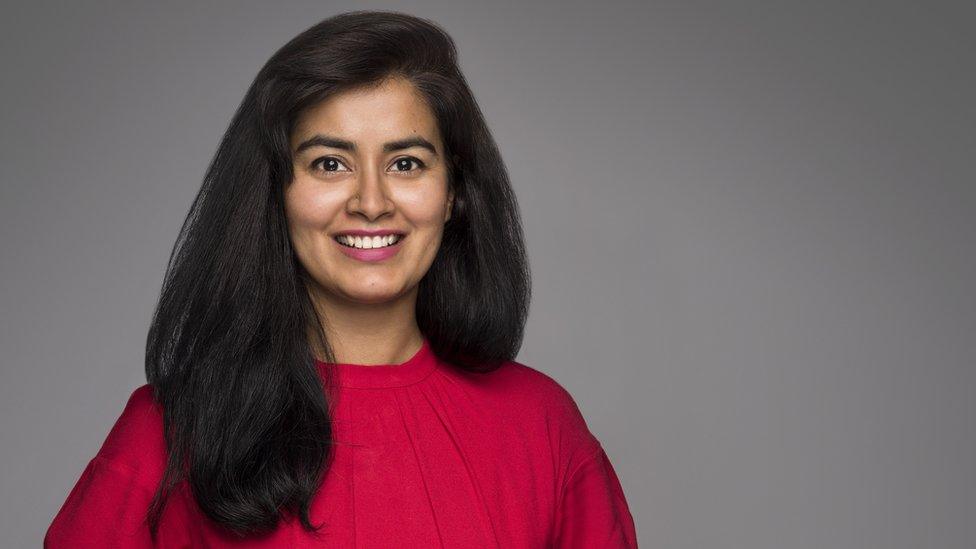
Ketaki Sharma predicts that trade between Israel and the UAE will grow significantly
She believes that trade between Israel and the UAE will exceed $10bn (£9.3bn) over the next five years.
"The accord was signed in 2020 and has already given a massive trade boost to both Israel and the UAE," says Ms Sharma.
She points to UN data showing that from 2020 to 2021 Israel's annual exports to the UAE soared from $74m to $384m., external At the same time, trade going in the other direction rose from $115m to $632m.
"Some of the MOUs [memorandum of understanding, or outline agreements] signed [between the two countries] include those in agriculture, clean energy, cybersecurity and smart cities," says Ms Sharma.
"A free trade agreement was also signed between the two countries in early 2022 that has led to the removal of tariffs on 96% of goods traded between the nations."
Israel is already said to have broken records in arms sales following the Abraham Accords. According to the Israeli Ministry of Defence, arms sales in 2021 peaked at $11.3bn, with 7% of those going to the UAE and Bahrain.
Israel's former defence minister Moshe Ya'alon (2013-2016) tells the BBC that the main reason is a common security threat in the region - namely, Iran.
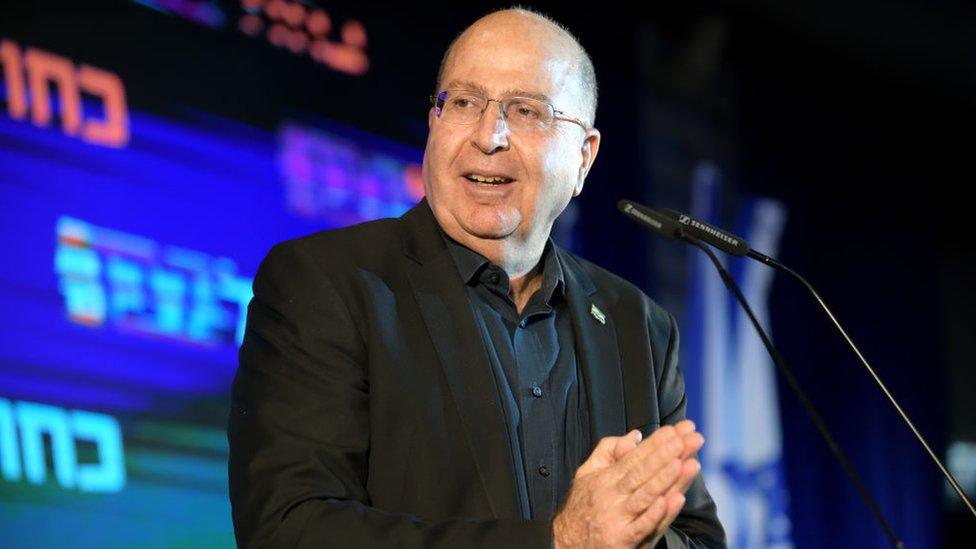
Moshe Ya'alon says a shared concern over Iran has helped bring Israel closer to Gulf states
"In the last decade Israel and the Gulf states have been facing common enemies, namely Iran and her proxies, and although the Palestinian issue still remains there is no longer the Arab-Israeli conflict."
The Palestinian Authority has, however, sharply criticised the normalisation deals with Israel, accusing such Arab states of selling out their cause.
Outside of the Gulf, Morocco has since also signed a similar normalisation agreement with Israel. As has Sudan, although progress between that country and Israel has stalled.
Mr Ya'alon is now the chairman of Synaptech, an Israeli-run, Abu Dhabi-based investment fund.
He believes that defence alliances are a key component to Israel's new ties with the Gulf states. But for national security reasons, he can't give many details. He'll only confirm: "We have found a way to cooperate about security."
Mr Ya'alon insists there are lots of other areas for growth as well.
"Gulf state leaders realised they need something more than oil, such as high tech, sophisticated agriculture in the desert, exploitation of water etc," he says. "In Israel we are fortunate to have achieved these technologies. So we have many common interests."
Deals are also being signed between Israeli and UAE firms in the energy sector. In September of last year Israeli company NewMed Energy (then called Delek Drilling) announced the sale of its 22% stake in Israeli offshore gas field Tamar to UAE firm Mubadala Energy for $1bn.
NewMed had needed to find a buyer to comply with government competition rules.
"The deal we signed with Mubadala was a significant step in deepening our regional activity and is part of our goal to strengthen our relations with the countries of the region," says NewMed chief executive Yossi Abu.
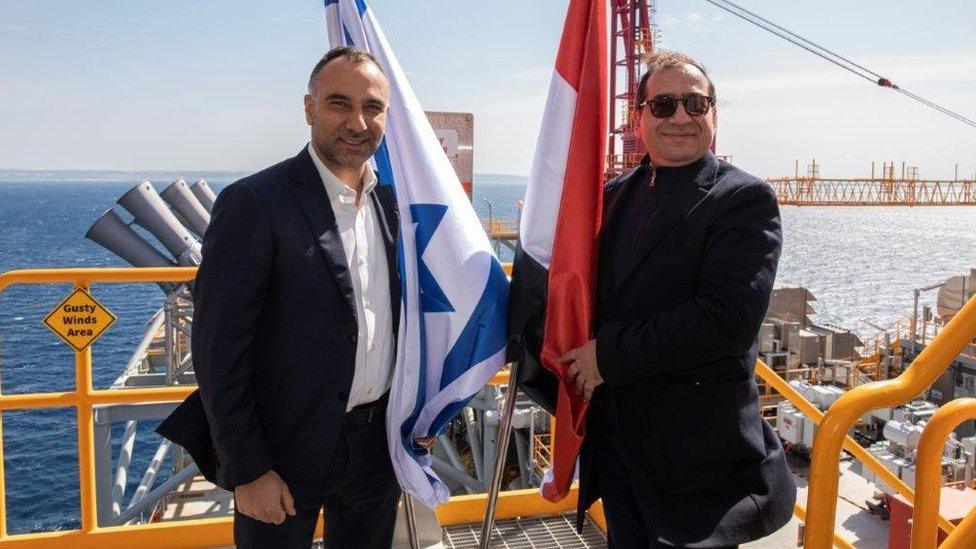
Yossi Abu, left, the boss of NewMed Energy, pictured here with Egypt's Minister of Petroleum, Tarek El-Molla, has welcomed investment in Israel from the UAE
Mas Watad is a Palestinian citizen of Israel, and the co-founder and president of Arab-language dieting app and website Dawsat.
Together with her partner Tally Zingher, they have recently expanded to the Gulf, thanks to the Abraham Accords.
She says the agreements have been "game changer", as she and her team are now able to move freely between Israel and the UAE and Bahrain. Ms Watad has also been able to relocate her family home to Abu Dhabi.
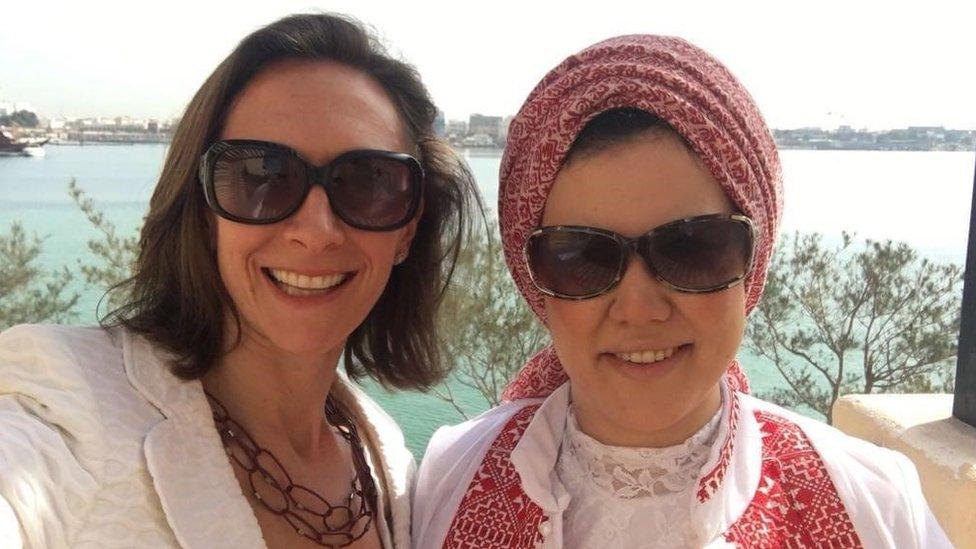
Mas Wasad, right, pictured here with her business partner Tally Zingher, now lives in the UAE
"The UAE wants to be a leader amongst some of the most important issues, health being at the forefront," she says, adding that the Abraham Accords is allowing Dawsat to see its "full effect and impact across the Arab world".
Ms Sharma says she hopes that other countries in the Gulf region will now seek their own agreements with Israel as they "see favourable outcomes from the UAE's experience".
"This is just beginning," she says, "We are all optimistic about the future."